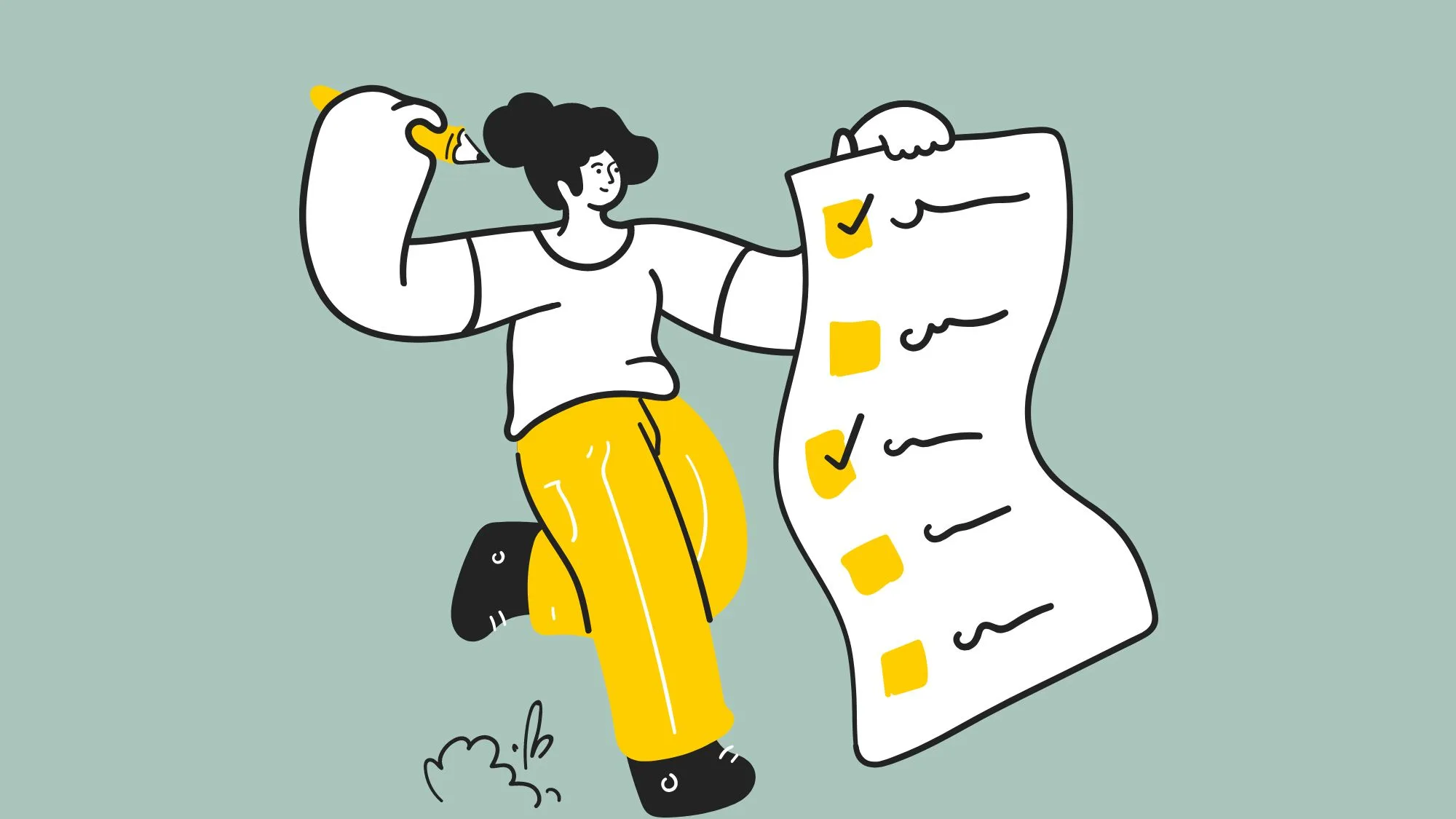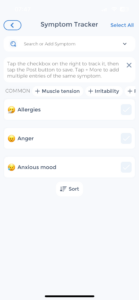
Depression is a complex mental health condition that affects millions of people worldwide. Its impact on mental well-being can be debilitating, making it crucial for individuals to take proactive steps towards self-care. In this comprehensive depression self-care checklist, we will explore the essential steps for promoting mental well-being and managing depression effectively.
Understanding Depression: A Brief Overview
Before delving into the self-care strategies, it is important to have a basic understanding of depression. Depression is more than just feeling sad or down; it is a serious mental health disorder that affects how a person thinks, feels, and behaves. It can cause a variety of symptoms, including persistent sadness, loss of interest in activities, changes in appetite and sleep patterns, difficulty concentrating, and feelings of worthlessness or guilt.
The Impact of Depression on Mental Health Condition
Depression can have a profound impact on mental health, affecting various aspects of a person’s well-being. It can disrupt daily functioning, interfere with relationships, and hinder overall quality of life. Depression can also increase the risk of developing other health problems, such as anxiety disorders or substance abuse.
Common Symptoms and Signs of Depression
Recognizing the symptoms and signs of depression is crucial for early intervention. Some common symptoms include persistent feelings of sadness or emptiness, loss of interest in previously enjoyable activities, changes in appetite, difficulty sleeping or excessive sleeping, fatigue or loss of energy, feelings of worthlessness or excessive guilt, difficulty concentrating or making decisions, and recurrent thoughts of death or suicide. If you experience these symptoms, it is important to seek professional help.
Depression can manifest differently in each individual, making it a complex and multifaceted condition. Some people may experience predominantly emotional symptoms, such as overwhelming sadness or a sense of emptiness. Others may experience physical symptoms, such as changes in appetite or sleep patterns. Additionally, depression can affect cognitive functioning, making it difficult for individuals to concentrate or make decisions.
It is important to note that depression is not a sign of weakness or a character flaw. It is a legitimate medical condition that requires proper diagnosis and treatment. Seeking help from a mental health professional is crucial in order to develop an effective treatment plan tailored to individual needs.[1][2][3]
The Importance of Self-Care in Managing Depression

The Role of Self-Care in Mental Health
Self-care acts as a foundation for maintaining good mental health. It involves nurturing oneself and meeting personal needs to prevent burnout and emotional exhaustion. By engaging in self-care, individuals can develop resilience, cope with stress more effectively, and enhance their overall well-being.
Why Self-Care Matters in Depression Management
Managing depression requires a comprehensive approach that combines medical treatment, therapy, and self-care. Self-care complements other forms of treatment by empowering individuals to take an active role in their mental health journey. It provides a sense of control and empowers individuals to make positive changes in their lives.
When it comes to self-care, there are various activities that individuals can incorporate into their daily routines. One example is practicing mindfulness and meditation. Taking a few minutes each day to focus on the present moment can help reduce stress and promote a sense of calm. Additionally, engaging in regular physical exercise has been shown to have a positive impact on mental health. Exercise releases endorphins, which are known as “feel-good” hormones, and can help alleviate symptoms of depression.
Another important aspect of self-care is maintaining a healthy and balanced diet. Consuming nutritious foods can provide the body with the necessary nutrients to support optimal brain function and mood regulation. It is also important to prioritize sleep and establish a consistent sleep routine. Lack of sleep can worsen symptoms of depression and affect overall well-being.
Furthermore, self-care involves setting boundaries and learning to say no when necessary. It is essential to recognize one’s limits and avoid overcommitting oneself, as this can lead to increased stress and feelings of overwhelm. Taking time for oneself, whether it be engaging in a hobby or spending time in nature, is also crucial for self-care.
In conclusion, self-care is an integral part of managing depression and promoting mental well-being. By incorporating self-care activities into daily routines, individuals can enhance their overall quality of life and develop effective coping mechanisms. Remember, self-care is not selfish; it is a necessary practice for maintaining good mental health.[4][5][6][7][8]
Building Your Depression and Daily Self-Care Checklist

Identifying Your Personal Needs
Take time to reflect on your personal needs and the activities that bring you joy and fulfillment. This may include engaging in hobbies, spending time in nature, practicing mindfulness or meditation, or engaging in creative outlets such as art or music. Identify activities that help you relax, recharge, and uplift your spirits.
Imagine yourself sitting in a serene garden, surrounded by vibrant flowers and the soothing sound of birds chirping. As you take a deep breath, you feel a sense of calm wash over you. This is the power of nature, and it can be a powerful tool in your depression self-care routine. Whether it’s taking a leisurely stroll in the park, going for a hike in the mountains, or simply sitting by a lake, spending time in nature has been proven to reduce stress, improve mood, and enhance overall well-being. So, make sure to include nature-based activities in your checklist to nurture your mind, body, and soul.
Setting Realistic Self-Care Goals
When setting self-care goals, it is important to be realistic and specific. Break down your goals into small achievable steps. For example, if physical activity is part of your self-care routine, commit to taking a 20-minute walk three times a week. As you achieve these small goals, you will build momentum and confidence in your ability to engage in self-care consistently.
Picture yourself lacing up your running shoes and heading out for a jog. As you start moving, you can feel the rush of endorphins flooding your body, lifting your mood and energizing your spirit. Physical activity is not only beneficial for your physical health but also plays a crucial role in managing depression. Engaging in regular exercise releases feel-good chemicals in your brain, such as serotonin and dopamine, which can help alleviate symptoms of depression and boost your overall well-being. So, don’t forget to include physical activities in your self-care goals to harness the power of movement and enhance your mental health.
Essential Steps for Mental Well-being
Taking care of your mental well-being is crucial in managing depression. Here are three key areas to focus on:
Physical Health Activities for Depression
Engaging in regular physical activity has been shown to significantly improve mood and reduce depressive symptoms. Incorporate activities that you enjoy, such as walking, dancing, swimming, or yoga. Aim for at least 30 minutes of moderate-intensity exercise most days of the week.
When it comes to physical self-care, it’s important to remember that it’s not just about the exercise itself, but also about the overall lifestyle choices you make. Eating a balanced diet, getting enough sleep, and avoiding excessive alcohol or drug use can all contribute to your mental well-being. By taking care of your physical health, you are giving your mind the foundation it needs to thrive.
Emotional Self-Care Strategies
Emotional self-care involves nurturing your emotional well-being and finding healthy ways to cope with stress. This may include practicing relaxation techniques, such as deep breathing or progressive muscle relaxation, journaling, expressing emotions through art or music, or seeking support from loved ones or a therapist.
Another important aspect of emotional self-care is learning to set boundaries and prioritize your own needs. It’s okay to say no to things that drain your energy or cause you unnecessary stress. By taking the time to identify and honor your emotional needs, you are giving yourself the space to heal and grow.
Social Self-Care: Building Supportive Relationships
Building and maintaining supportive relationships is vital for mental and emotional health. Reach out to friends, family members, or support groups who can provide emotional support. Use technology to stay connected, whether through video calls or messaging apps. Engaging in meaningful social interactions can help combat feelings of isolation and loneliness.
Additionally, consider exploring new social activities or hobbies that align with your interests. Joining a club or organization, volunteering, or participating in group activities can not only expand your social network but also provide a sense of purpose and fulfillment. Remember, human connection is a powerful tool for healing and growth.[9][10][11][12]
Overcoming Challenges in Practicing Self-Care
Practicing self-care can sometimes be challenging, especially when dealing with depression. Here are two common challenges and strategies to overcome them:
Dealing with Lack of Motivation
Depression can sap your motivation, making it difficult to engage in self-care activities. Start small and set achievable goals. Break tasks into smaller steps and celebrate each accomplishment. Use a self-care app like CareClinic to track your progress, set reminders, and receive motivational messages.
When facing a lack of motivation, it’s important to remember that self-care doesn’t have to be a grand gesture. It can be as simple as taking a warm bath, going for a short walk, or spending a few minutes engaging in a creative activity that brings you joy. By breaking self-care activities into manageable tasks, you can gradually build momentum and regain motivation.
Managing Time for Self-Care
Feeling overwhelmed by responsibilities and time constraints can hinder self-care efforts. Plan your self-care activities in advance and schedule them on your calendar. Treat self-care as a priority and allocate dedicated time for it. Use CareClinic’s scheduling feature to set reminders and keep track of your self-care routine.
When it comes to managing time for self-care, it’s important to recognize that taking care of yourself is not selfish but necessary for your overall well-being. By carving out specific time slots for self-care, you are prioritizing your mental health and making a commitment to yourself. Whether it’s waking up a few minutes earlier to meditate, setting aside time during lunch breaks for a rejuvenating activity, or dedicating an evening each week to engage in a hobby, finding what works best for you and sticking to it can make a significant difference.
In addition to these strategies, it’s worth mentioning that seeking support from loved ones or professional therapists can also be beneficial in overcoming challenges in practicing self-care. They can provide guidance, encouragement, and accountability, making the journey towards self-care more manageable and fulfilling.
Remember, self-care is an ongoing process, and it’s normal to face obstacles along the way. By acknowledging these challenges and implementing effective strategies, you can navigate through them and create a sustainable self-care routine that promotes your mental well-being.[13][14]
Use the CareClinic App to Manage Mental Health Conditions
As you embark on your journey of self-care for depression, the CareClinic App can be an invaluable companion. With its comprehensive symptom tracker, you can monitor changes in your mood, sleep patterns, and energy levels, allowing for a personalized approach to managing your mental health. The app’s reminder system ensures you stay on top of medication schedules, therapy appointments, and self-care activities, making it easier to maintain consistency in your routine.
Download the CareClinic App to Track Depression Symptoms
By utilizing the CareClinic App, you gain access to detailed reports that help you and your healthcare provider understand the effectiveness of your treatment plan. This data-driven approach can lead to more informed decisions and improved health outcomes. Take control of your mental well-being today and Install the CareClinic App to start tracking your progress towards a healthier, more balanced life.[15][16]
References
- “Depression – National Institute of Mental Health (NIMH)”. https://www.nimh.nih.gov/health/topics/depression
- “Mental Health Conditions: Depression and Anxiety | Overviews of Diseases/Conditions | Tips From Former Smokers | CDC”. https://www.cdc.gov/tobacco/campaign/tips/diseases/depression-anxiety.html/
- “Recognizing the Signs: Common Depression Symptoms and Their Impact – PsychPlus”. https://psychplus.com/blog/depression-symptoms/
- “10 Effective Self-Care Strategies for Managing Anxiety and Depression”. https://www.mindspringhealth.org/resources/news/10-effective-self-care-strategies-for-managing-anxiety-and-depression
- “Major depressive disorder”. https://en.wikipedia.org/wiki/Major_depressive_disorder
- “Self Care Activities for Dealing with Depression – Your Health”. https://www.yourhealth.net.au/articles/wellbeing/mental-health/self-care-activities-for-dealing-with-depression/
- “Management of depression”. https://en.wikipedia.org/wiki/Management_of_depression
- “Self-care for depression – Mind”. https://www.mind.org.uk/information-support/types-of-mental-health-problems/depression/self-care/
- “Certain exercises may offer effective treatment for depression – Harvard Health”. https://www.health.harvard.edu/mind-and-mood/certain-exercises-may-offer-effective-treatment-for-depression
- “10 Self-Care Ideas for Coping with Depression”. https://mindfulhealthsolutions.com/take-the-edge-off-10-self-care-ideas-for-coping-with-depression/
- “Self-Care Strategies to Improve Your Overall Mental Health”. https://www.helpguide.org/mental-health/wellbeing/self-care-tips-to-prioritize-your-mental-health
- “Empower Yourself: Tools to Regain Control from Depression”. https://psychquest.org/empower-yourself-tools-to-regain-control-from-depression/
- “What You Can Do When Depression Drains Your Motivation — Full Well Therapy”. https://www.fullwelltherapy.com/resources/fwttips/depression-and-motivation
- “Maintaining Motivation When Battling Depression”. https://mapmental.com/articles/motivation-in-depression-strategies/
- “JMIR Mental Health – Effectiveness and Minimum Effective Dose of App-Based Mobile Health Interventions for Anxiety and Depression Symptom Reduction: Systematic Review and Meta-Analysis”. https://mental.jmir.org/2022/9/e39454/
- “A systematic review of the effectiveness of mobile apps for monitoring and management of mental health symptoms or disorders – PubMed”. https://pubmed.ncbi.nlm.nih.gov/30347316/


